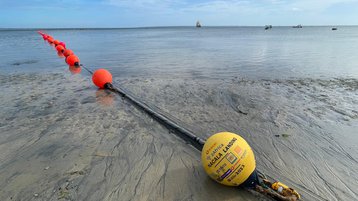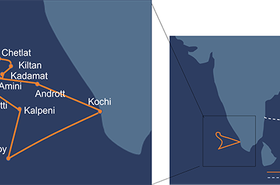The European Union (EU) could invest in its subsea cable network under proposals from the European Commission designed to improve the resilience of the continent’s infrastructure.
A roadmap setting out measures to protect Europe’s submarine cables, or cable projects of European interest (CPEI), is set to be unveiled on Wednesday, according to a report by Reuters.
"This Recommendation aims to encourage the deployment or significant upgrade of submarine cable infrastructure via CPEIs in compliance with EU law, including state aid rules," a European Commission proposal seen by Reuters said.
How Europe could bolster its subsea cable network
Subsea cables deliver 97 percent of global Internet traffic, and as such damage or sabotage of this infrastructure is seen by many governments as a significant security risk.
The term CPEI refers to a project jointly delivered by governments and the private sector, and the European Commission proposal said member states should appoint a group of experts to look at which CPEIs are of greatest strategic importance to Europe, and how these can be improved and protected.
"This recommendation invites Member States to adopt measures to ensure that submarine cable infrastructure operators meet the highest security standards (including defence-level standards, where appropriate)," the document seen by Reuters said.
Funding could be provided from existing EU programs such as the European Investment Bank, as well as private investors, it added.
China and Russia’s threat to subsea cables
A separate report on the proposals by Euractiv suggests the EU could seek to ban what it deems “high-risk suppliers” from having any involvement in the roll-out of new subsea cables.
It cites Chinese providers such as Huawei, which provides such infrastructure through its HNM Tech subsidiary, and ZTE as those that could face bans or restrictions.
Last October, two subsea cables in the Baltic Sea, along with a gas pipeline, were damaged by a Chinese container ship, with an investigation by Finnish authorities suggesting this may have been a deliberate attempt at sabotage.
NATO has also warned that Russia could look to damage subsea cables in an attempt to destabilize Western countries as its war in Ukraine continues.







